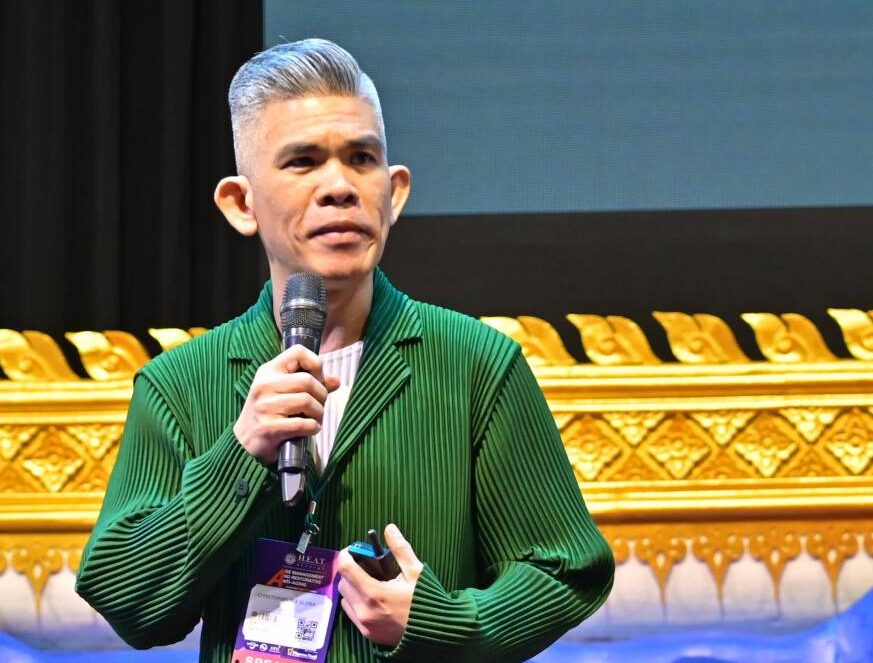How specialized apps empower doctors, guide patients

In a bold step toward personalized wellness, two interconnected digital platforms, CLIA and Shae.ai, are reshaping the health management landscape. Rooted in the transformative personal health journey of Australian scientist Matt Riemann, these innovations use the principles of epigenetics—the study of how environment and lifestyle influence gene expression—to offer tailored insights for both individuals and their health-care providers.
Riemann’s personal encounter with familial amyloid polyneuropathy, a debilitating genetic condition characterized by the buildup of abnormal protein deposits, ignited his quest. Despite adhering to a healthy lifestyle, his diagnosis in 2007 came with a stark prognosis.
Driven by his scientific background and the knowledge of his genetic predisposition, Riemann delved into epigenetics. This field offered the potential to influence his genetic trajectory through personalized lifestyle modifications. His subsequent recovery underscored the deep impact of tailored interventions.
His critical experience fueled the creation of human intelligence AI (artificial intelligence), before the wave of AI we know today, and Shae.ai, a user-centric mobile app designed to deliver these highly personalized health recommendations directly to individuals in real time. Longevity doctor Rex Gloria, a pioneering Asia ambassador of Riemann’s Precision Health Alliance, envisions a future where AI-driven tools such as Shae.ai and CLIA are integral to health care.
To clarify their distinct roles, Dr. Gloria explained, “Shae.ai (Smart Health Assessment Engine) is just for the patient, and CLIA (Clinical AI Assistant) is just for the doctor.” This basic difference in target users dictates their respective functionalities and interfaces.
Personalized wellness
The Shae.ai application serves as a personal health hub, empowering individuals to actively engage in their well-being journey. It is not intended for diagnosis but rather as an intelligent assistant providing tailored guidance. It’s like having a consolidated health app that goes beyond simple tracking, offering nuanced recommendations based on your unique biology.
A key feature of Shae.ai is its ability to conduct a body scan using a smartphone’s camera that took 20 years to create from evidence-based science. Estimating body composition and anthropometric body ratios (calculations from body measurements), this analysis provides insights into body proportions, body composition, and potentially associated health risks. The human-level AI recognizes how physical characteristics relate to health predispositions. It combines this data with daily health habits and family medical history questionnaires. This continuous data collection allows the app to build an increasingly refined and personalized health profile for the user.
The Shae.ai user interface presents personalized recommendations across several vital areas.
Based on a detailed body scan and individual profile, Shae.ai offers highly nuanced and personalized nutritional guidance. This includes suggesting compatible foods, identifying potential intolerances, and even providing recipes, preparation instructions, and the convenience of automated shopping list creation. Moving from standard dietary recommendations, this approach delivers a comprehensive individualized support for your nutritional needs.
Continuing the personalized approach, Shae.ai extends its capabilities to fitness. The application recommends exercises specifically chosen for an individual’s body type and goals, complete with video demonstrations to ensure correct form. Drawing upon your unique profile, the app highlights exercises considered beneficial for your constitution, enabling you to engage in them anytime and anywhere.
Conversely, it may also advise on exercises to approach with caution or avoid, depending on your body’s specific requirements. Moreover, incorporating the principles of chronobiology, the app suggests optimal times for physical activity to help you achieve maximum benefits while minimizing strain on your body.
Shae.ai also addresses lifestyle factors. The application provides tailored recommendations for relaxation techniques, mindfulness practices, and even offers insights into social interactions that may better support overall health and well-being.
Doctor’s virtual assistant
In contrast, CLIA is a powerful tool for health-care professionals, aiming to enhance their efficiency and deepen their understanding of their patients. Dr. Gloria described it as the “doctor’s personal assistant,” capable of automating key tasks and providing valuable analytical capabilities.
One vital feature of CLIA is its AI-powered ability to transcribe online patient consultations and automatically generate SOAP notes. SOAP is a standard medical documentation format encompassing:
Subjective: The patient’s reported symptoms and history.
Objective: Measurable data such as vital signs and physical examination findings.
Assessment: The doctor’s interpretation of the subjective and objective information.
Plan: The proposed course of action, including treatments and further investigations.
This automated note-taking frees up clinicians to focus more intently on the patient during consultations.
CLIA can analyze laboratory results uploaded by the nurse or secretary. The AI can quickly identify key anomalies and even suggest potential supplements with a rationale, drawing upon the patient’s unique profile. This quick analysis of complex data can significantly aid in diagnosis and treatment planning. Moreover, CLIA can aggregate and interpret years of a patient’s medical history within minutes, providing a comprehensive overview that might be challenging to glean from individual reports.
Synergy
The true synergy between Shae.ai and CLIA occurs when a patient grants permission to share their health data from the Shae.ai app with their doctor who is using CLIA. This crucial step requires the patient’s consent to ensure data privacy.
Dr. Gloria explained that CLIA serves as the “back office” for doctors, managing patient information through transcribed consultations and offering in-depth analysis of patient results via a “clinical assistant format.” The connection with the patient’s Shae.ai app, upon their consent, provides a valuable stream of real-world data that complements traditional clinical assessments. For instance, a doctor using CLIA could see if a patient is adhering to dietary recommendations suggested by Shae.ai and track their activity levels through wearable devices. This holistic view enables more informed and personalized adjustments to the patient’s care plan.
In essence, Shae.ai provides individuals with personalized tools for practical self-management. It acts as a dynamic digital view of their health. CLIA, meanwhile, offers healthcare professionals AI-driven tools to increase the quality and speed of care without taking more of their already limited time. These streamline tasks and provide deeper insights into patients. Ultimately, this points toward a future where technology fosters a more customized, proactive, and collaborative path to optimal health.
For more details, visit www.drrexgloria.com.




















